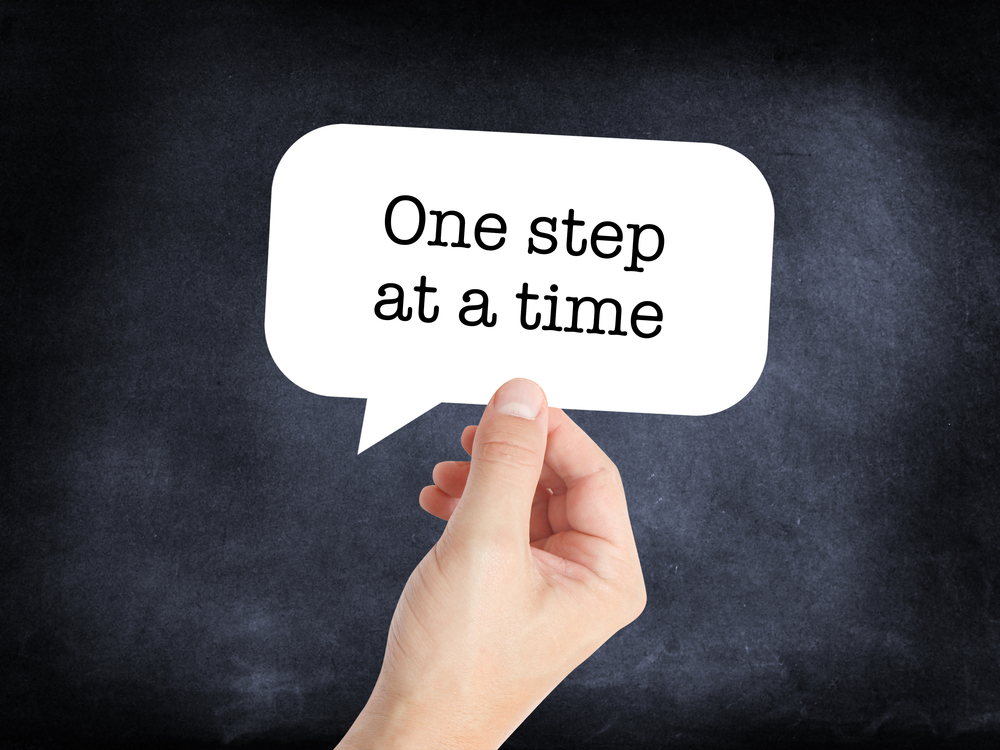One step at a time. If you go too fast, it is more than likely that you won’t make it.
By Rabbi Ari Enkin, Rabbinic Director, United with Israel
This week’s Torah portion is “Va’era” (Exodus 6:2–9:35), and in it we read about Moses’ meeting with Pharaoh, demanding to have the Jewish people freed from slavery. We also read about seven of the 10 plagues that struck Egypt due to Pharaoh having been so stubborn and refusing to let the Jewish people go.
Many are under the mistaken impression that God had sent Moses to free the Jewish people from slavery once and for all. Freedom from bondage, a departure from Egypt, and a march to the Holy Land, right? Well, maybe not!
Not once, but twice, Moses asks Pharaoh to release the Jews for three days. That’s right. Many people miss it in the verses, but originally, God instructed Moses to go to Pharaoh and have him release the Jews for three days. Not forever. Just for a small taste of freedom. This is written once in last week’s Torah portion (Exodus 5:3) and again in this week’s Torah portion, where it says, “We will go on a three-day journey in the Wilderness and bring offerings to our Lord, as He will instruct us.” (Exodus 8:27). And at one point, Pharaoh even agrees to let the Jews have this three-day freedom!
Wait a sec. Did God want to free the Jewish people from slavery permanently or simply give them a few days of rest? And if He really wanted them permanently free, was He lying to Pharaoh (through Moses), and even to the Jewish people, who knew about the plan?
It is suggested that when God first demanded a three-day break from Pharaoh, He really meant it. It was real. Had Pharaoh agreed, the Jews would have left for three days and then returned to Egypt. Permanent freedom would come some time down the road. God wouldn’t lie to Moses. God, however, knew that Pharaoh would reject the idea of even a three-day break, allowing God to shelve that plan and pursue His true plan of permanently freeing the Jews.
But what was the intention of this three-day “teaser?” Why did God present it if He knew it would never come to be? Did He want to get the Jewish people to get their hopes up?
Listen to this beautiful answer: It is explained that change can’t be drastic. To go from “0-100” in an instant is too much. We can’t shock ourselves with change.
For example, one who is very overweight and has decided to lose weight and get into shape cannot begin with a near-zero food intake combined with a full day of exercise. It would be too much for the person, it wouldn’t be healthy, and it wouldn’t last. Such a person should start with some easy diet changes, adding exercise to his routine, and slowly increasing both in moderation. Plenty of sluggish, overweight people have become healthy, thin and energetic, even bodybuilders, but it didn’t happen overnight!
Similarly, when people are starting to become more observant after living a secular lifestyle, I encourage them not to become observant overnight. I tell them to take baby steps. Don’t immediately keep Shabbat as if you’re an ultra-orthodox rabbi; start with being more Shabbat observant than you were the week before. Starting to keep kosher? Great! But not overnight. Start with eating only kosher meat. As the Talmud says, “If you try to grab too much too fast, you will end up with nothing”. Everything slowly and in moderation.
So God knew that Pharaoh would not allow his slave empire to disappear in a heartbeat just because an invisible God said so. Therefore, God presented the plan as being somewhat gradual, as if to get Pharaoh used to the idea that his rule over the Jewish slaves was coming to an end and that the Jews would be serving a different authority (“bring offerings to our Lord, as He will instruct us”). Even though Pharaoh rejected the plan, it made him begin to contemplate that things were coming to an end.
Frankly, it was also good for the Jews to first hear of their freedom as a three-day respite and not total freedom. The Jewish people were slaves for generations. Most Jews never knew a life outside of slavery – they were born into slavery and died while slaves. They had been influenced by the Egyptian lifestyle. If the Jews would have heard that “tomorrow” they’d be free, they might have freaked out! “What!? Freedom? Leaving Egypt? My routine? The “free” “meals?””? and so on. The Jewish people, just like Pharaoh, needed time to digest the idea that they would soon be free. For it to happen all of a sudden would be too much of a shock. Like anything in life.
There you have it. Whether it’s the evil Egyptians, the beaten Jews, or you and me. Whichever “promised land” you are trying to get to, make sure you get there slowly! If you go too fast, it is more than likely that you won’t make it.
For more insights by Rabbi Enkin, on this week’s Torah portion, click on the links below.
https://unitedwithisrael.org/living-torah-dont-whack-the-frogs/
https://unitedwithisrael.org/living-torah-rejoice-over-the-success-of-others/
https://unitedwithisrael.org/living-torah-the-importance-of-prayer/
Bring Joy to Israeli Soldiers - Send Winter Care Packages!
We are honored to thank the young men and women of the IDF who risk their lives every day to defend the citizens of Israel.
Join us in sending winter care packages and personal notes of support to Israeli soldiers who are out in the cold all day.
Warm up a soldier's heart with essential winter wear including fleece jackets, hats, gloves and more. Keep an entire unit warm!
THE SOLDIERS REALLY APPRECIATE YOUR LOVE AND CONCERN!
Click Here to Send Your Gift and Personal Note to Israeli Soldiers
